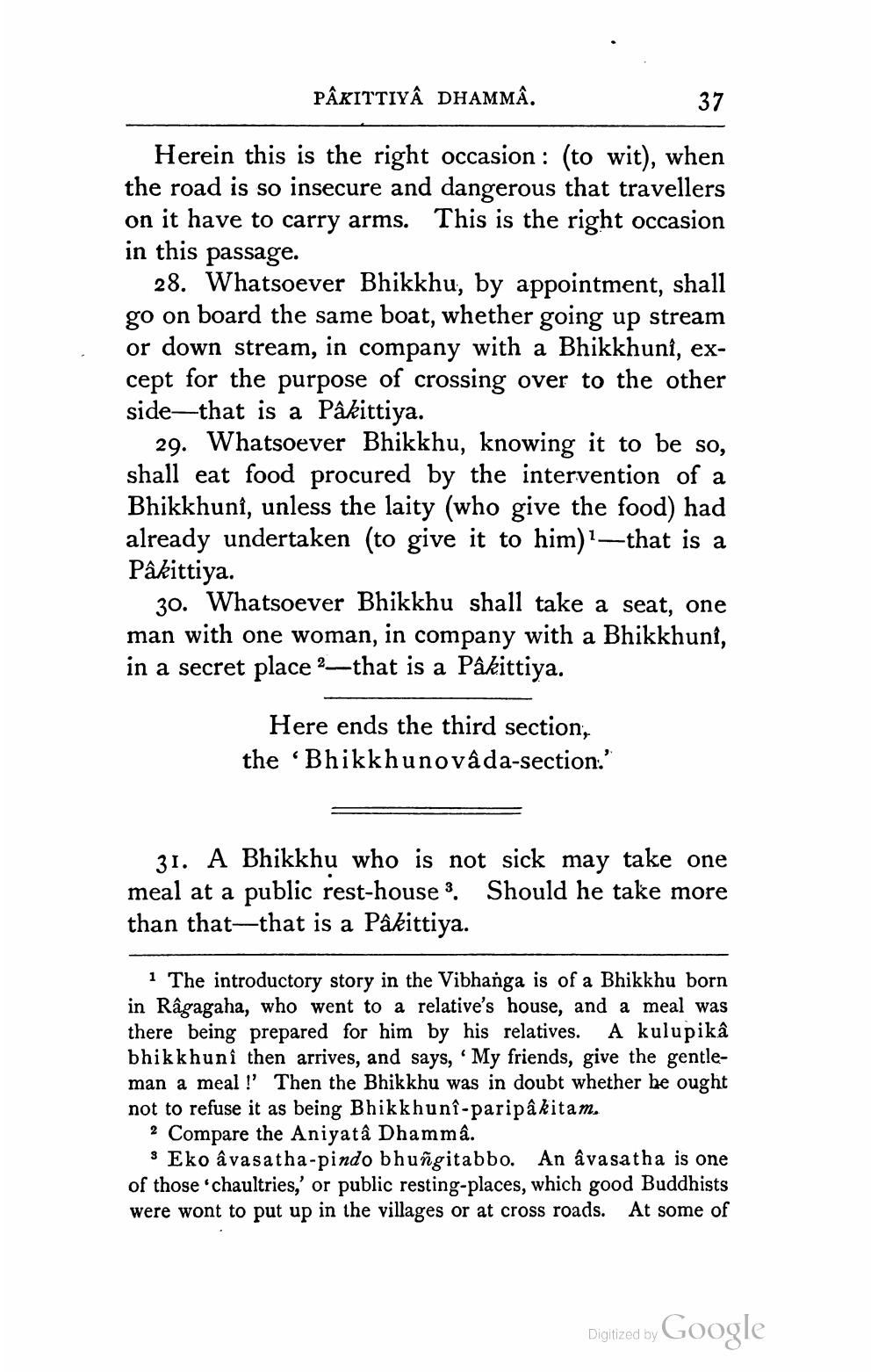________________
PAKITTIYA DHAMMA.
37
Herein this is the right occasion: (to wit), when the road is so insecure and dangerous that travellers on it have to carry arms. This is the right occasion in this passage.
28. Whatsoever Bhikkhu, by appointment, shall go on board the same boat, whether going up stream or down stream, in company with a Bhikkhunt, except for the purpose of crossing over to the other side that is a Pâkittiya.
29. Whatsoever Bhikkhu, knowing it to be so, shall eat food procured by the intervention of a Bhikkhuni, unless the laity (who give the food) had already undertaken (to give it to him)1-that is a Pâkittiya.
30. Whatsoever Bhikkhu shall take a seat, one man with one woman, in company with a Bhikkhuni, in a secret place 2—that is a Pâkittiya.
Here ends the third section,
the 'Bhikkhunovâda-section."
31. A Bhikkhu who is not sick may take one meal at a public rest-house. Should he take more than that-that is a Pâkittiya.
1 The introductory story in the Vibhanga is of a Bhikkhu born in Râgagaha, who went to a relative's house, and a meal was there being prepared for him by his relatives. A kulupikâ bhikkhuni then arrives, and says, 'My friends, give the gentleman a meal!' Then the Bhikkhu was in doubt whether he ought not to refuse it as being Bhikkhunî-paripâkitam.
2 Compare the Aniyatâ Dhammâ.
3 Eko âvasatha-pindo bhuñgitabbo. An âvasatha is one of those 'chaultries,' or public resting-places, which good Buddhists were wont to put up in the villages or at cross roads. At some of
Digitized by
Google




